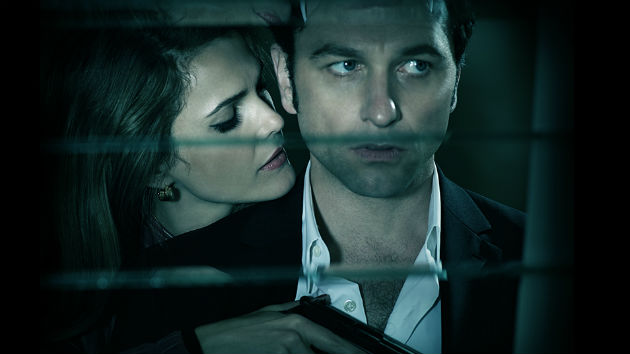Courtesy of HBO
“Silicon Valley satire nails the culture, geeks say,” the Los Angeles Times read. “Mike Judge’s Silicon Valley is satire, but feels like a documentary,” Slate notes. “Mike Judge skewers Silicon Valley with the satire of our dreams,” Wired raves.
That’s because Judge and company really, really did their homework. In crafting the first season of their new HBO comedy series Silicon Valley, the show’s creative core (Judge, Alec Berg, Clay Tarver, and Dan O’Keefe) pretty much did everything short of embedding with Tesla Motors to prepare for writing the show.
“We just wanted to get it right,” says Tarver, a former musician and an admittedly “accidental” writer. “There’s that funny thing when you see [the rock mockumentary] This Is Spinal Tap, you think that, ‘Oh, musicians are gonna hate them for doing that!’ But then musicians all love it—because it strikes the right tone. And that was our goal: If you knew more about this world than we did, you’d think we got it right.”
Silicon Valley follows a fumbling, disorganized team of young programmers and businessmen (a brilliant cast that includes Thomas Middleditch, T.J. Miller, Zach Woods, Kumail Nanjiani, and Martin Starr) as they start their own company and attempt to bring their revolutionary file-compression technology to market. (Before Judge was famous for Office Space and Beavis and Butt-Head, he was a programmer and briefly worked at a Silicon Valley starup. He hated it.) And in the pursuit of getting these things just right, the guys behind Silicon Valley quickly developed a passion for finding the funny in Northern California’s hub of tech, innovation, and unmanageably large egos.
It wasn’t too hard to find.
Their research included visiting tech accelerators and incubators. They studied hours of video, presentations, and (of course) TED Talks, so they could internalize the vernacular and on-stage pomposities of Silicon Valley figures. They hired Jonathan Dotan, a 33-year-old entrepreneur and consultant (now an associate producer on the series) who helps out a lot with nailing down the show’s technical nitty-gritty.
Judge, Berg, Tarver, and O’Keefe also went on tech “field trips” together. This included two days of immersing themselves at TechCrunch Disrupt, the annual conference where startups show off their product to potential investors. “For something called ‘Disrupt,’ it was so damn orderly,” O’Keefe, who worked with Berg on Seinfeld, recalls. (O’Keefe essentially gave the world Festivus.) “The conference had this punk-rock font to it, but you’d get in there and there were these very cheerful young people in Oxford shirts and crisply pressed T-shirts with names of their companies on it.”
The result of all their time and research is an incisive send-up of socially awkward, extremely intelligent tech insurgents, and also of the eccentric, cutthroat billionaire entrepreneurs who they must deal with. This first season (consisting of eight episodes) is a special blend of blistering and affectionate. (“Anytime you’ve got self-important, pompous, powerful people, it’s always fun to take a shit on them,” Berg told Wired.)
“Silicon Valley is populated by extremely comic characters, and it hasn’t really been mined at all before,” O’Keefe says. “It’s just a comedy writer’s dream…It’s as if you’re launching Sex and the City and no one has ever set a TV show in New York before.”
But as the four of them wrapped production on season one, they began to realize that their satire might not be capable of holding a candle to reality. Last January, Tom Perkins—cofounder of one of Silicon Valley’s top venture capital firms—wrote a letter to the Wall Street Journal in which he compared the “progressive war” on America’s megarich to Nazi persecution of Jews. “Kristallnacht was unthinkable in 1930; is its descendent ‘progressive’ radicalism unthinkable now?” Perkins asked provocatively.
This and subsequent comments were widely critiqued and mocked—and the people at Silicon Valley took note. “I thought we were harsh at the beginning, but we weren’t harsh enough!” Tarver says. “When you have billionaires in Silicon Valley comparing the 1 percent to Jews during the Holocaust, and all that shit…The politics are really interesting in Silicon Valley, because it sort of comes from this hippie place…but in the end, it’s a ruthlessly capitalistic place.”
















